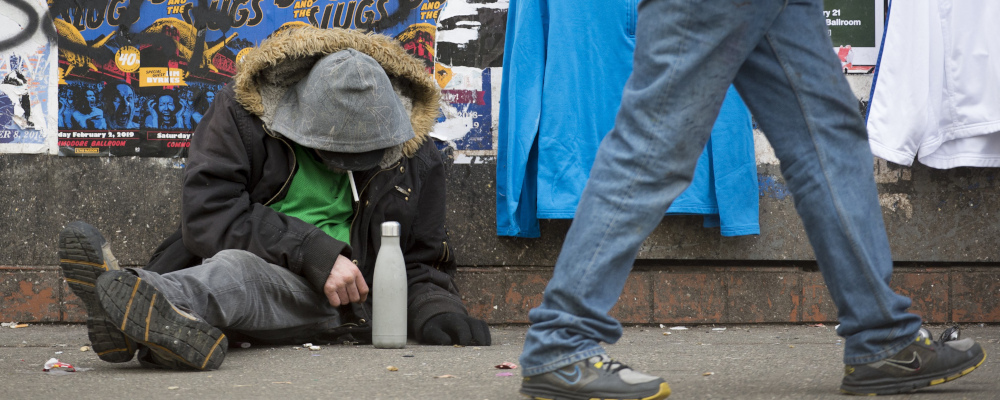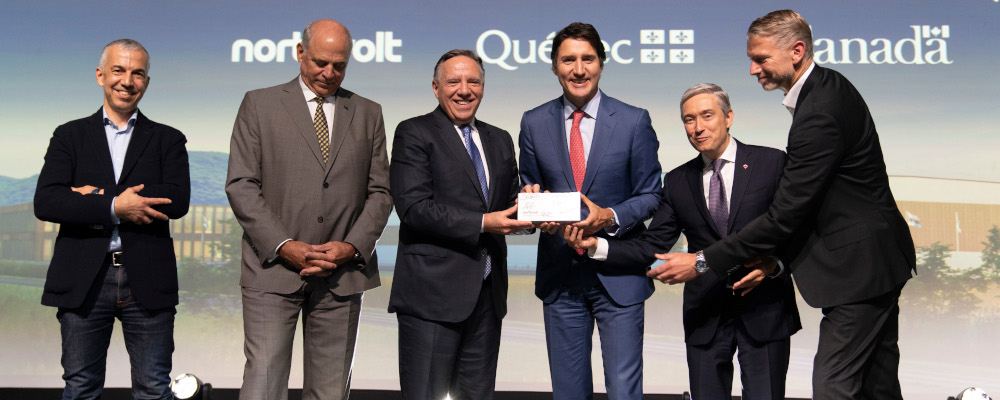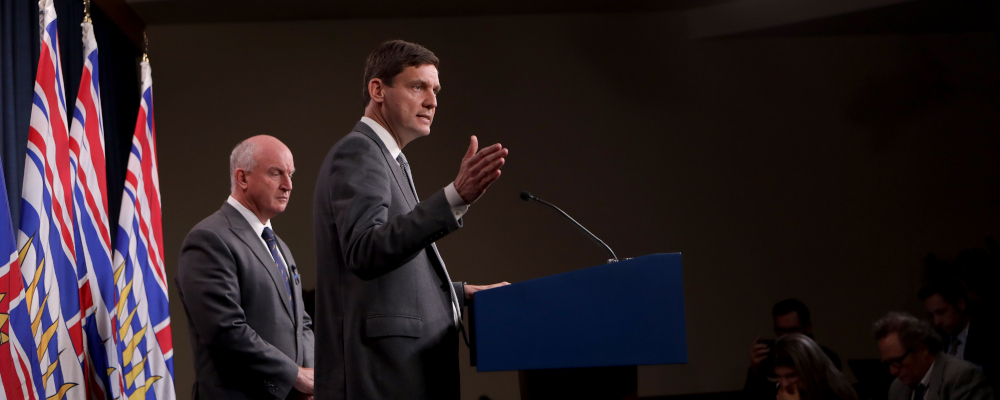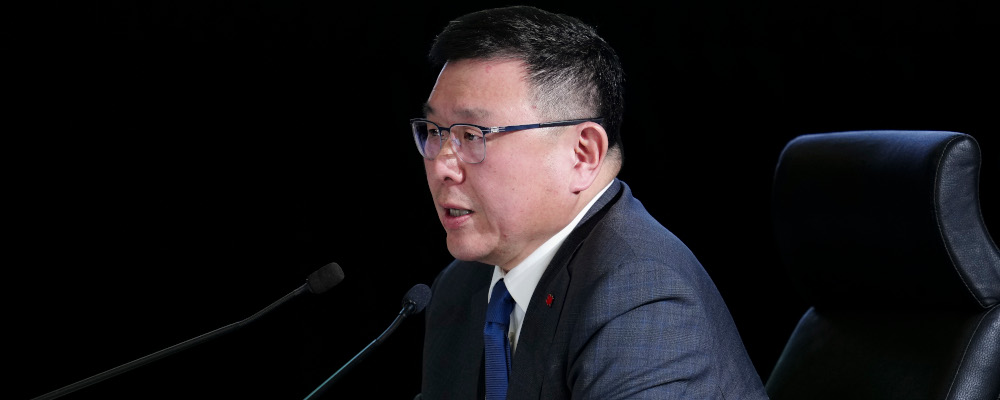In The Weekly Wrap Sean Speer, our editor-at-large, analyses for Hub subscribers the big stories shaping politics, policy, and the economy in the week that was.
Trudeau’s twisted view of capitalism is costing us all
This week, Prime Minister Trudeau participated in a Q&A session at a major trade union event outside of Ottawa where he discussed, among other topics, his personal conception of the market economy. It was a telling conversation that exposed the prime minister’s flawed thinking about the strengths and weaknesses of capitalism.
What was most striking was his inherently dark view of the market economy itself. He seemingly sees it in Hobbesian terms in which positive-sum exchange is next-to-impossible and predatory arrangements are instead the norm.

As he put it: “…particularly now where you have the concentration of capital and wealth in smaller and smaller numbers of Canadians’ hands, making sure that the benefits of growth actually accrue to entire communities and to all Canadians, of all generations, that does require a government to step up.”
This understanding of capitalism assumes that power dynamics explain virtually everything in the economy. A large and active state isn’t just responsible therefore for humanizing the market’s outcomes, but for ultimately ensuring that we don’t devolve into a negative-sum, high-conflict society.
It’s both conceptually and practically wrong. Adam Smith’s The Wealth of Nations showed how capitalism’s form of mutual exchange is about effectively channeling commercial self-interest into positive-sum outcomes. As he famously wrote: “It is not from the benevolence of the butcher, the brewer, or the baker, that we expect our diner, but from their regard to their own interest.”
But Smith went beyond a utilitarian case for the market economy and put forward the argument that capitalism actually cultivates virtue. In his less-famous book, The Theory of Moral Sentiments, he convincingly argued that the process of mutual exchange encourages key virtues like civility, prudence, thrift, and trust.
George Will put it to me this way in a 2021 interview: “…capitalism doesn’t just make us better off, which it manifestly does, but also it makes us better. It makes for a polite, cooperative, and trusting society that is respectful of individuals pursuing their private interests and groups of individuals contracting together to collaboratively pursue their interests.”
This more positive understanding of markets is backed up by data and research on trust. Although the direction of causality is somewhat contested, it’s axiomatic that high-trust societies tend to be market democracies. Capitalism’s culture of voluntary exchange supports (and depends on) high levels of interpersonal trust and trust in mediating institutions.
This textured picture of capitalism stands in stark contrast to the simplistic one painted by the prime minister. The market economy isn’t perfect—it’s only worth “two cheers” as Irving Kristol wrote—but it’s far better than Prime Minister Trudeau’s false characterization. It’s a reminder that bad government and bad policies usually start with bad ideas.

The Alberta model prevails as B.C. reverses drug decriminalization policies
Last weekend when The Hub’s publisher, Rudyard Griffiths, and I were in Vancouver, he persuaded me to walk to the Downtown Eastside to see firsthand the major concentration of drug use and social disorder that’s been permitted to emerge there over the past several years.
It was an extraordinary experience—not something, by the way, that I’d encourage after a sushi lunch. I was nearly sick to my stomach several times because of the overwhelming smell. I wish that I could say that my first instinct was one of compassion and empathy but it was principally disgust about how gross and unlivable the conditions were.
It was merely a coincidence that our walk coincided with news that British Columbia Premier David Eby had officially asked Ottawa to abandon plans to decriminalize drugs in the province. Their “recriminalization” represents a major defeat for the “harm reduction” ideology which has been so dominant in the discourse about drug policy for the past decade or longer.
Yet, if harm reduction is increasingly the subject of doubt, it’s not merely because of the awful sights that we saw. It’s in large part because a growing number of voices, including writers like Adam Zivo, a former student of mine, have come to carefully scrutinize the harm reduction model and share their troubling findings with Canadians. It’s enabled many to better understand the costs and failings of a radical policy experiment to effectively give drugs to addicts.
It’s led to a pretty remarkable sea change. I remember back in the Harper era when even though common sense told us that “defining deviancy down” was a bad idea, it had the strong support of a loud and influential group of experts. There was also no credible alternative on offer. Critics of harm reduction were therefore on the defensive even if intuition was on their side.
I think, for instance, of the Ford government in Ontario, which after it was elected in 2018 was immediately on the defensive about approving more safe injection sites. It proved to be a torturous decision for a newly-elected, ostensibly centre-right government with a big electoral mandate to do things differently. It was a sign of how one-sided the debate was.
Progress really starts with the Kenney government in Alberta which didn’t accept that these issues ought to be defensive ones for conservatives. Jason Kenney and his ministers instead developed a credible and robust alternative to harm reduction rooted in law enforcement and treatment. The “Alberta recovery model” has since been held up as an exemplar for Canada and other jurisdictions around the world.
These developments have granted license to others—including previously silenced medical experts—to step up and criticize the human tragedy unfolding in British Columbia and elsewhere across the country. One cannot help but think that the result of the rise of the Alberta model, Zivo’s work, and the accumulating failures of the status quo is that the pendulum is shifting such that harm reduction proponents are now the ones on the defensive.
Last week’s decriminalization announcement (which must be understood as a fundamental reversal for the Eby government) is a sign that things are finally moving in a more humane and ultimately effective direction. The harm reduction experiment may be fortunately coming to an end.

The market—not government—is our best bet for solving climate change
An underreported development this week was the announcement that Capital Power is abandoning a major carbon capture and storage project outside of Edmonton. Comments from the company were pretty direct: the technology isn’t “economically feasible” even with large-scale public subsidies.
It reflects an inherent challenge for climate policy advocates. So much of Canada’s emissions-reduction plan—particularly as we approach the 2050 target of net-zero emissions—amounts to the old economist line about “assuming a ladder.” We’ve increasingly organized our economy around new technologies to lower emissions, including electric vehicles and carbon capture, that represent suboptimal or uncertain bets.
The government is massively subsidizing these technologies because they’re not really responses to market signals. They’re a function of government climate mandates, including the controversial emissions cap on the oil and gas sector. Having imposed stringent mandates, the government is now compelled to help individuals and businesses respond to them.
It’s an example of how poorly designed climate policies can invariably lead to a bigger role for government in allocating and managing resources in the private economy. The state effectively manufactures demand through regulation and then subsidizes supply through tax credits and direct spending programs.
This not only leads to inefficiencies, but it turns the government into a taxpayer-supported venture fund. It shouldn’t be lost on people that one of the reasons why the project was scuppered is because Capital Power couldn’t access more subsidies from Ottawa’s euphemistically named Canada Growth Fund.
A more productive approach would be to adopt more neutral policies that decentralize decisions about best how to respond to private actors or less stringent policies altogether that don’t force industry and government into non-economical technologies for which the costs may outweigh the emission-reduction benefits.
The latter notion is contentious of course. But it’s hardly a fringe position. It may even be the optimal approach for Canada to contribute to global emissions reductions.
One thing is clear: if it produces outcomes rooted in practical reality rather than idealized assumptions, it will be better for Canada’s economy and ultimately the environment.
Recommended for You

Ginny Roth: J.D. Vance, Pierre Poilievre, and how they slice their economic pie

David Polansky: As President Biden leaves the race, will the Democratic Party hodgepodge hold?

Malcolm Jolley: Cool Chardonnays for warm days

Five Tweets on Western Canada’s devastating wildfires












